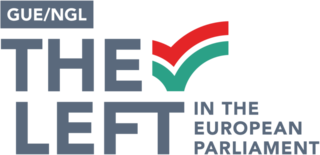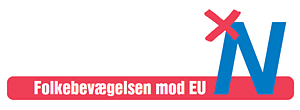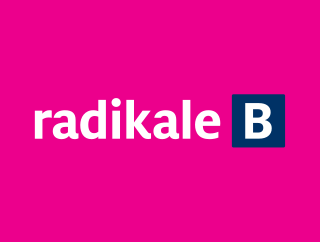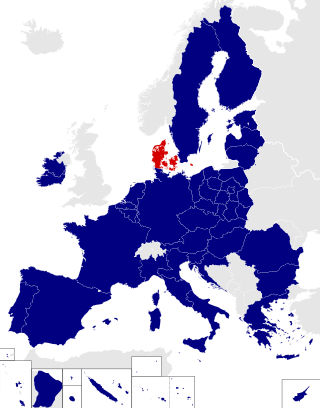
The Alliance of Liberals and Democrats for Europe Party is a European political party composed of 60 national-level parties from across Europe, mainly active in the European Union. The ALDE Party is affiliated with the Liberal International and a recognised European political party, incorporated as a non-profit association under Belgian law.

The Left in the European Parliament – GUE/NGL is a left-wing political group of the European Parliament established in 1995. Before January 2021, it was named the European United Left/Nordic Green Left.

Euroscepticism, also spelled as Euroskepticism or EU-scepticism, is a political position involving criticism of the European Union (EU) and European integration. It ranges from those who oppose some EU institutions and policies, and seek reform, to those who oppose EU membership and see the EU as unreformable. The opposite of Euroscepticism is known as pro-Europeanism, or European Unionism.

The Green Left is a democratic socialist political party in Denmark. It was formerly known in English as the Socialist People's Party, the literal translation of its Danish name.

Venstre, full name Venstre, Danmarks Liberale Parti, is a conservative-liberal, agrarian political party in Denmark. Founded as part of a peasants' movement against the landed aristocracy, today it espouses an economically liberal, pro-free-market ideology.

The Danish People's Party is a nationalist and right-wing populist political party in Denmark. It was formed in 1995 by former members of the Progress Party (FrP).

Pro-Europeanism, sometimes called European Unionism, is a political position that favours European integration and membership of the European Union (EU).
European Parliament elections were held in Denmark on 13 June 2004 to elect the 14 Danish members of the European Parliament. The opposition Social Democrats made major gains, mainly at the expense of Eurosceptic parties such as the June Movement.

The People's Movement against the EU is a political association in Denmark against the European Union. It was founded in 1972 as a cross-party campaign platform for a 'no' vote in Denmark's referendum on EEC membership. The People's Movement was represented in the European Parliament from 1979 until 2019, when it lost its single seat in the European Parliament election.

The Danish Social Liberal Party is a social-liberal political party in Denmark. The party was founded as a split from the Venstre Reform Party in 1905.

Denmark is a European Parliament constituency for elections in the European Union covering the member state of Denmark, but not other parts of the Danish Realm such as the Faroe Islands or Greenland, which are not part of the EU. It is currently represented by fourteen Members of the European Parliament. Denmark uses the D'Hondt method of proportional representation. Electoral coalitions between two or more parties are allowed.
European Parliament elections were held in Denmark on 9 June 1994 to elect the 16 Danish members of the European Parliament.

European Parliament elections were held in Denmark on 7 June 2009 to elect the 13 Danish members of the European Parliament. The election was held simultaneously with a referendum on changing the Danish Act of Succession.

The politics of Denmark take place within the framework of a parliamentary representative democracy, a constitutional monarchy and a decentralised unitary state in which the monarch of Denmark, Queen Margrethe II, is the head of state. Denmark is described as a nation state. Danish politics and governance are characterized by a common striving for broad consensus on important issues, within both the political community and society as a whole.

The 2014 European Parliament election in Denmark was an election held in Denmark on 25 May 2014 to decide who would represent Denmark in the European Parliament (EP) from 2014 to 2019. The Danish People's Party with 26.6% of the votes became the largest party for the first time in a nationwide Danish election.

A referendum on one of the country's opt-outs from the European Union was held in Denmark on 3 December 2015. Specifically, the referendum was on whether to convert Denmark's current full opt-out on home and justice matters into an opt-out with case-by-case opt-in similar to those held by Ireland and the United Kingdom. Approval of the referendum was needed for Denmark to remain in Europol under the new rules. However, it was rejected by 53% of voters.

The 2019 European Parliament election in Denmark was held on 26 May 2019, and elected the Danish members to the European Parliament. The elections are part of the EU-wide elections for the parliament. Denmark has 13 seats in parliament, and which will be increased by one additional seat, once Brexit comes into force.

Danish withdrawal from the European Union is the hypothesis that Denmark might leave the European Union (EU). Leaving the EU is officially supported by just two of the political parties represented in the Danish Parliament, with less than 8% of the total seats.

A referendum on the abolition of the defence opt-out, one of the country's opt-outs from the European Union, was held in Denmark on 1 June 2022. The referendum was announced on 6 March 2022 following a broad multi-party defence agreement reached during the 2022 Russian invasion of Ukraine. The referendum resulted in the "Yes" side winning with approximately two-thirds of the vote.
















